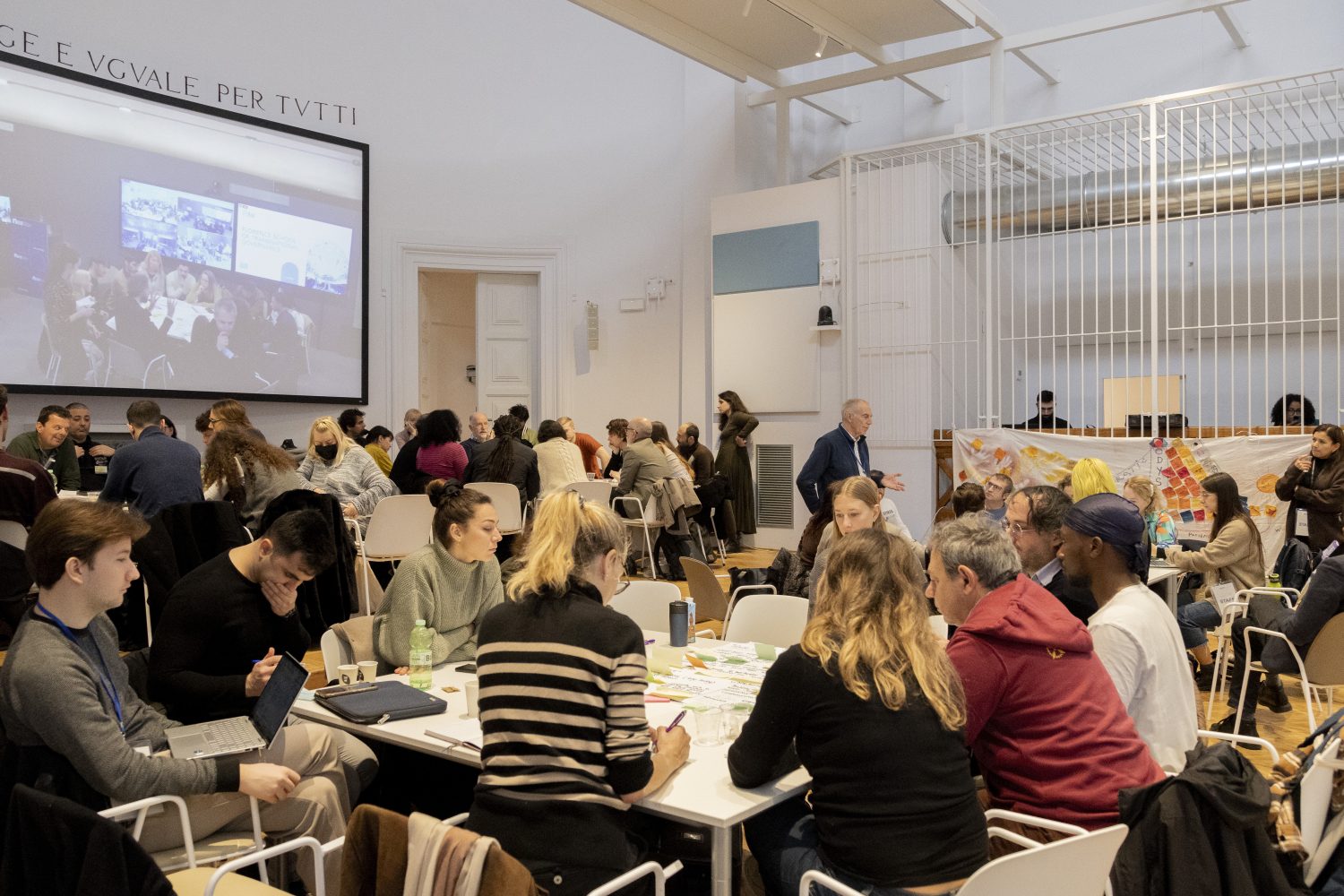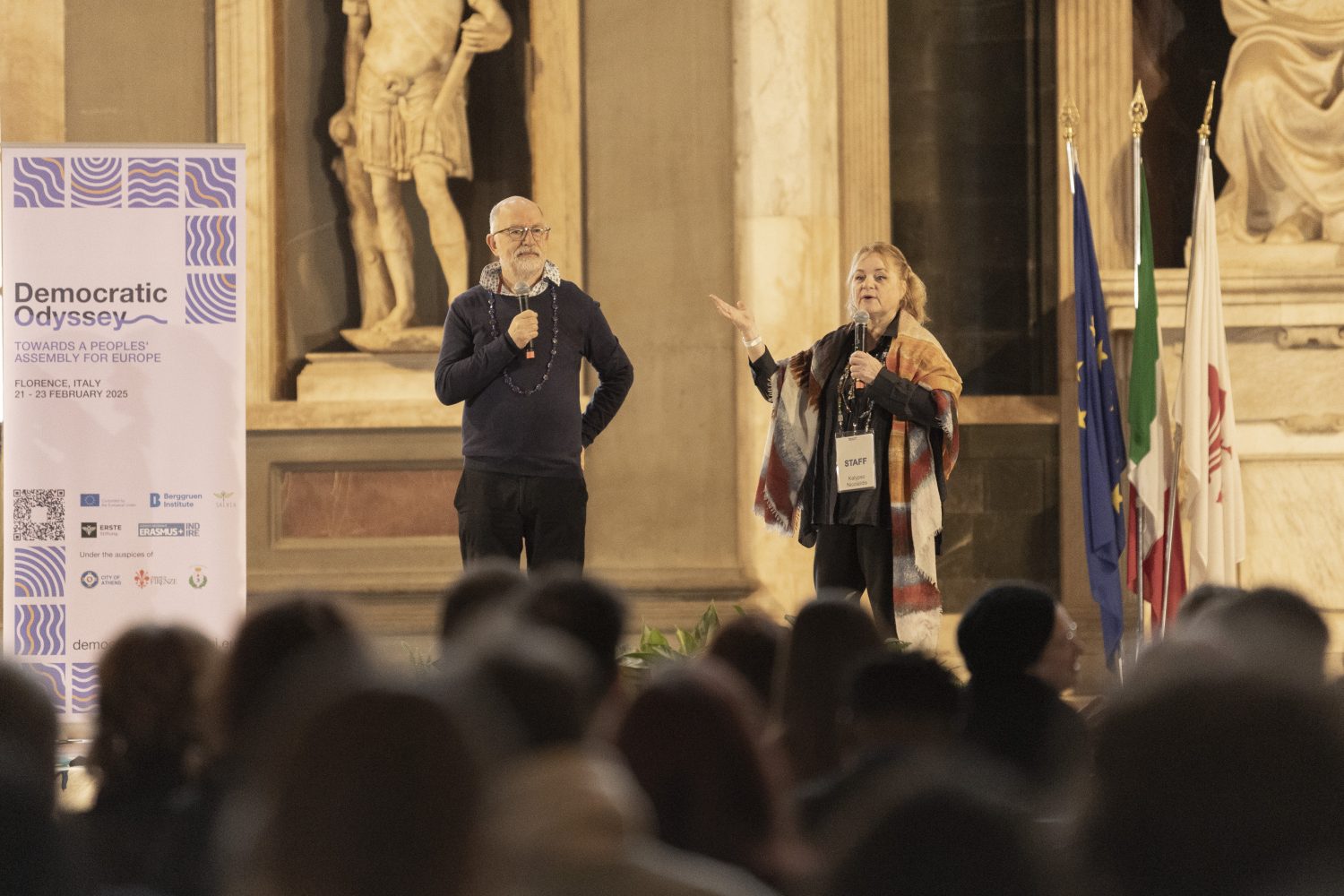by Amy Delis & Kalypso Nicolaidis

“Democratic institutions,” Tocqueville bemoaned, “strongly tend to promote the idea that nothing is stable, nothing lasting, nothing beyond the immediate reach of the individual.” Since the founder of democratic theory famously despaired over citizens overwhelming focus on the present or the near future over distant future, it has been a cliché to note how because individuals in democracies are more equal and more autonomous, they are less likely to feel bound to a long-term legacy or to traditions that span generations. As a result, democracies are supposed to be bad at investing for the long term. Tocqueville was especially wary of the effect of frequent elections on policymaking with politicians, “so preoccupied with the next election that they lose sight of the distant future.” As a result, democracies lacked continuity, as each new political wave might undo the work of its predecessors. In contrast, leaders in aristocratic systems, with wealth and status passed through inheritance, often planned for the long run—both for their families and their societies.
Assuming the diagnosis is true, we ask whether and how “another kind of democracy” can remedy this bias.
We label our argument “Tocqueville Redemption”, to remind ourselves of Tocqueville’s own attempt to argue that democracy was not doomed to short-sightedness. As he observed in particular in America, democratic societies could develop virtues of foresight and restraint, especially through institutions like civil associations, education, and religion, which could teach citizens to look beyond the present. If we take seriously his broader conviction that the remedy to democracy’s flaws is more not less democracy, we must bet on more democracy between elections providing more continuous institutional support for popular ownership of our democratic future.
Strategic Foresight
Here is a paradox however. Today, strategic foresight is everywhere, yet mostly absent from the democratic public sphere. It is an important policy tool for anticipating future risks and opportunities in government and administrative circles, through processes aimed at fostering preparedness for future trends and shocks: national and regional strategies on future thinking are drawn up (for example, Finland, the Netherlands, Spain, Flanders, and Sardinia); the European Parliament and Commission regularly publish foresight reports, through the Foresight Competence Centre and the ESPAS network. But none of these processes are accountable for future-proofing their societies.
Foresight, therefore, should be democratised precisely to cultivate a resilient and inclusive culture of long-term thinking among the broader public. Strategic foresight is a deeply creative and deliberative method, where both the process and results benefit greatly from the inclusion of various voices. Even in their technocratic version, foresight methods themselves already have the capacity to include various knowledge and make connections between different stakeholders, and more deliberation can make “foresight practice be more representative, pluralist and consistent in public policy work”. As such, democratising foresight would both increase the democratic legitimacy of future visions and improve the diversity of the results.
One way to do so is to harp back to an ancient democratic practice: citizens’ assemblies formed through sortition or randomly selected citizens serving through rotation. Because these are generally less susceptible to external pressures and short-sighted policy preferences they can greatly contribute to the effectiveness of future scanning.
There have already been some attempts at participatory foresight, including CIVISTI and CIMULACT. Both multi-year projects involved citizens in multiple rounds of consultations co-creating visions of the future of research in the EU. In local contexts, projects such as BioKompass in Germany and Marcoussis 2038 in France have found a creative way to engage citizens in future thinking. Combined with more structured deliberations, the projects set up museum exhibitions and participated in popular local events, bridging the gap between formal foresight processes and community engagement. They also found ways to share their findings in publicly accessible manners, one made an interactive app, and the other a short movie. Hence, resilient culture of long-term thinking can be fostered, bringing in different parts of society beyond either the world of politicians or that of technocrats. But can this transtemporal form of democracy be scaled up to be transnational and trans scalar, where local and international topics can be addressed with the same seriousness? Can they reflect the need and possibilities for a new democratic transformation of our social and political societies?

The Democratic Odyssey: Next Frontier of democratic foresight
We have tried to take up this challenge through the Democratic Odyssey, a campaign towards a permanent Peoples’ Assembly for Europe. This campaign is grounded on its own experiment of a crowdsourced pilot assembly, a unique space to try and adapt various new and innovative methods of participation and deliberation. Since the pilot explores how we may be able to weather future crises together more democratically, foresight and future thinking are the perfect fit for engaging with citizens’ visions. So far the pilot assembly of the Democratic Odyssey has met two times in person, as well as a few times online. Inspired by the ancient Greeks and Renaissance Florentines, the travelling assembly met in Athens in September 2024 and in Florence in February 2025. Next, May 23-25, the third and last meeting on this travelling assembly will be held in Vienna.
In Athens, participants were transported to the year 2029 where through a simulation, they negotiated solutions to a new global polycrisis, taking on the role of citizens, media, policymakers, and industries. The basic scenario sketched out ahead of time was augmented in real-time thanks to the assembly member’s own ‘future headlines’. The insights from the simulation were then brought back to the present to discuss what would need to happen now in 2024 to allow more preparedness and resilience for such possible future crises. The second meeting in Florence explored inter-alia the tradeoff between focussing on Immediate Crisis Response vs. Long-Term Planning ultimately seeing it as a false dichotomy.
Two points can be highlighted at this stage. First, citizens can engage with foresight in a gamified way. Through a simulation of time travel and multiparty negotiation, they can temporarily assume the role of different stakeholders in a crisis and reflect on what actions they would take. Future thinking requires not only the ability to anticipate and prepare for what lies ahead but also empathy to consider the collective world of the future. Second, only a culture of deliberation can fully harness the potential of foresight and anticipatory governance. Collective intelligence can be cultivated through participatory processes. This approach requires active listening, critical thinking, problem-solving, and collective action.
Looking ahead to the third meeting in Vienna, the assembly can find new ways to engage with future thinking in a creative way. Deliberations and foresight activities with a radically diverse group will allow for innovative thinking.
The Democratic Odyssey has leveraged the needed elements for such engagement with future thinking at different moments. In both Athens and Florence, the assembly had set up social events open not just to the assembly members but also to the broader public. The open event in Vienna will seek to democratise further future thinking to a broader and a diverse public, through a future market, as with Marcoussis, or a translocal future crisis.
Moreover, while structured deliberation is an important part of foresight, it is not the only one. There are numerous innovative and creative ways to engage in future thinking. Citizens can create future artefacts, resulting in concrete representations of their imagined future with which to interact with the broader public including through digital tools. The assembly moment in Florence had experimented with AI in support of the deliberation process. What if a future persona created by citizens’ visions were there to support the deliberative process as a reminder for future generations? This would be a fitting incarnation of Tocqueville’s redemption.
Amy Delis is a master’s student at the EUI’s School of Transnational Governance, following the specialisation tracks of transnational democracy and global security challenges.
Kalypso Nicolaidis is Chair in Global Affairs at the EUI’s School of Transnational Governance and leads key initiatives on democracy and global governance. Formerly at Oxford, Harvard, and ENA Paris, she has advised EU bodies and focuses on European integration, global affairs, and post-colonialism.